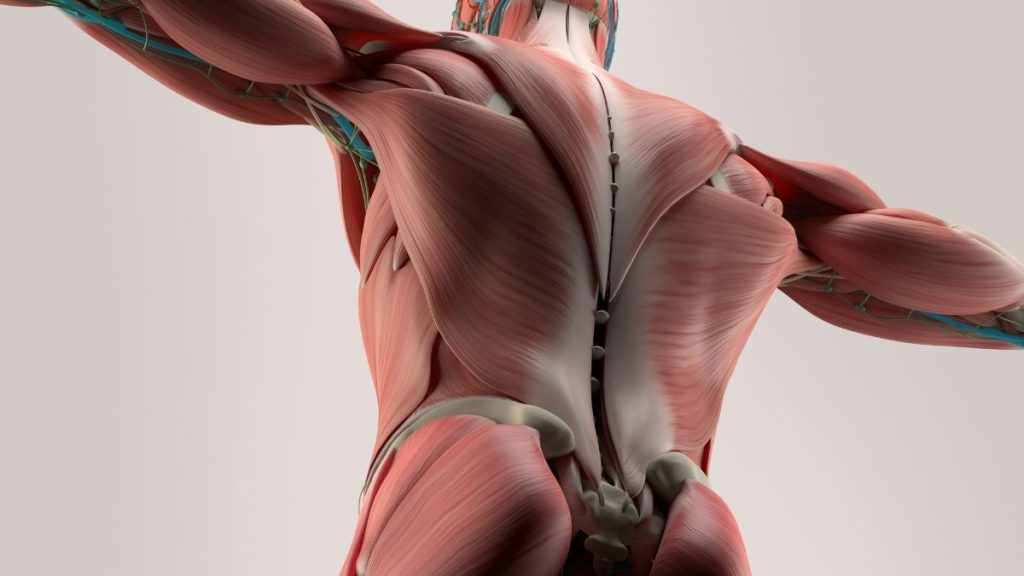Bone health and muscle growth are closely connected, yet many people focus only on building muscle without considering the foundation that supports it—strong bones. Without a healthy skeletal system, muscle growth, strength, and performance suffer. Understanding this connection can help you optimize your workouts, prevent injuries, and achieve long-term fitness goals.
How does bone health impact muscle growth?
Bones provide the structure that muscles attach to, allowing movement and force generation. Strong bones support heavier lifts and better muscle engagement, while weak bones increase the risk of fractures and injuries. Additionally, bones store essential minerals like calcium and phosphorus, which are crucial for muscle contractions and recovery.
As you age, bone density naturally declines, which can lead to conditions like osteoporosis. This deterioration affects your ability to maintain muscle mass and strength. However, proper nutrition and resistance training can slow down bone loss and promote muscle growth simultaneously.
What nutrients support bone health and muscle growth?
Diet plays a significant role in maintaining strong bones and building muscle. Key nutrients include:
- Calcium: Essential for bone density and muscle contractions. Found in dairy, leafy greens, and fortified foods.
- Vitamin D: Helps the body absorb calcium and supports muscle function. Sources include sunlight, fatty fish, and fortified dairy products.
- Magnesium: Aids in muscle recovery and bone strength. Found in nuts, seeds, and whole grains.
- Protein: Supports both bone structure and muscle repair. High-protein foods like lean meats, eggs, and legumes are excellent choices.
- Collagen: Improves bone flexibility and joint health, reducing injury risk. Found in bone broth, fish skin, and collagen supplements.
Can exercise improve bone density and muscle growth?
Yes, resistance training and weight-bearing exercises stimulate both bone formation and muscle development. When you lift weights, your bones experience stress, prompting them to become denser and stronger. This process is called bone remodeling, and it plays a critical role in preventing fractures and osteoporosis.
Effective exercises for bone health and muscle growth include:
- Weightlifting: Squats, deadlifts, and bench presses strengthen both bones and muscles.
- Bodyweight exercises: Push-ups, lunges, and planks improve joint stability and endurance.
- High-impact activities: Jumping rope, sprinting, and plyometrics enhance bone density.
- Balance and flexibility training: Yoga and mobility exercises reduce fall risks and improve posture.
How does aging affect bone and muscle health?
Aging leads to sarcopenia (muscle loss) and osteopenia (bone density loss). Without proper intervention, these conditions increase the risk of fractures, weakness, and mobility issues. By maintaining a strength-training routine and consuming nutrient-rich foods, you can slow these effects and preserve both muscle mass and bone strength.
Hormonal changes also impact bone and muscle health. Lower testosterone levels in men and decreased estrogen levels in women contribute to bone loss. Strength training and adequate protein intake help counteract these effects, promoting better muscle retention and bone maintenance.
How can you prevent bone loss while building muscle?
To support both bone and muscle health, follow these strategies:
- Prioritize strength training – Lift weights at least three times a week to stimulate bone formation and muscle hypertrophy.
- Get enough calcium and vitamin D – Aim for at least 1,000 mg of calcium and 600 IU of vitamin D daily.
- Eat protein-rich foods – Consume 0.7 to 1 gram of protein per pound of body weight to support muscle repair and bone structure.
- Avoid excessive alcohol and smoking – These habits weaken bones and hinder muscle recovery.
- Stay active – Engage in daily movement to maintain joint flexibility and reduce bone loss.
Key Takeaways
- Bone health and muscle growth are interconnected, with strong bones providing support for muscle development.
- Essential nutrients like calcium, vitamin D, and protein contribute to both bone density and muscle strength.
- Resistance training, weight-bearing exercises, and a balanced diet improve bone and muscle health.
- Aging leads to muscle and bone loss, but strength training and proper nutrition help slow the process.
- Lifestyle choices, including avoiding smoking and excessive alcohol, play a vital role in long-term bone and muscle maintenance.
By prioritizing bone health along with muscle growth, you create a strong foundation for lifelong fitness and strength. Strengthen your bones, fuel your muscles, and watch your performance improve over time.




